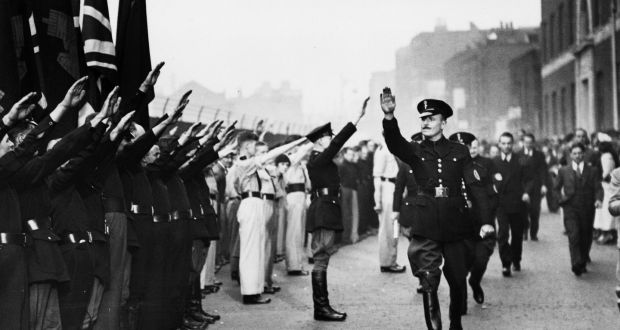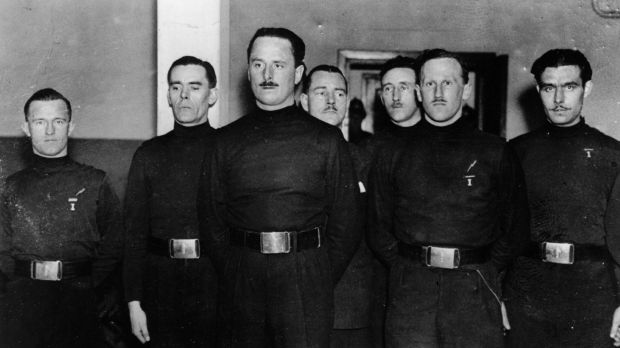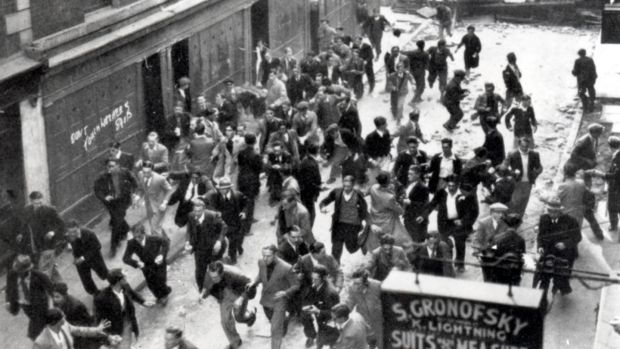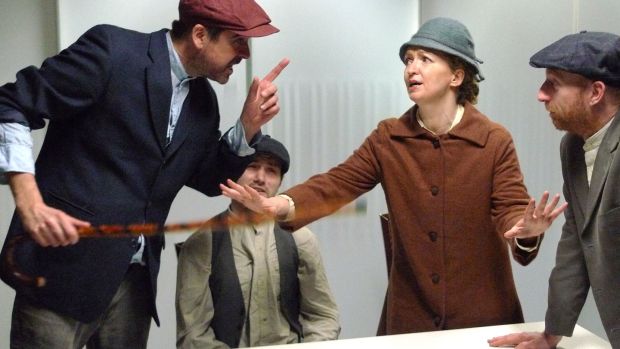Divided London community united against common enemy in Battle of Cable Street.
After serving in the first World War, Mosley was elected as a Conservative MP. He quickly fell out with his own party, criticising the violence of the Black and Tans auxiliaries in the Irish Civil War, to the point where he quit the party.

Mosley had also been a vocal supporter of Irish nationalism, and his Blackshirts included many Irishmen. His personal bodyguard was a Belfast man, and one of his closest political advisers was William Joyce, a US-born Anglo Irishman who would find infamy as Lord Haw Haw, broadcasting Nazi propaganda from Berlin during the war.

Meanwhile, the all-powerful Catholic church back in Ireland was actively encouraging the development of Ireland’s own version of the Italian fascists as a bulwark against communism, and they weren’t shy about equating Communism with Judaism.
That year the Dean of Cork told a crowd of 40,000 people that the civil war in Spain was nothing but the work of a “gang of murderous Jews from Moscow”.
It is possible that Mosley imagined the Irish Catholic immigrants living uncomfortably with their Jewish neighbours would come out and fight alongside the fascists, or at least stay out of the fray.
It is over idealistic to imagine Cable Street marked the demise of the British fascists. The BUF’s peak of popularity had come two years earlier, in 1934, but a notoriously violent meeting at Earls Court lost it much mainstream support, including that offered by Lord Rothermere and his Daily Mail.

By 1936 the British Union of Fascists was looking like a spent force politically, even while its fascist cousins in Germany, Italy and Spain were strengthening their hold over their countrymen.
At its inception, Mosley insisted the BUF was not an anti-Semitic movement but by 1936, with its support on the wane, it was following an increasingly strident anti-Jew message.
Battle of Cable Street
The march of 5,000 Blackshirts through the largest Jewish community in the UK was a cynical and provocative act.
When attempts to convince the police to ban Mosley’s rally failed, mainstream leaders, from the Labour Party to the Jewish Deputies, advised people in the area to stay indoors, ignore the fascist marching through their streets and not give the BUF the violent confrontation they were seeking.
It was a call that was ignored on the morning of Sunday October 4th, when an estimated 20,000 protesters flooded out into the streets. They were met by around 6,000 uniformed policemen, who battled to break the human blockade and allow the BUF to carry out their march.
Witnesses on the day recall seeing young Irish dockworkers fighting elbow to elbow the old Jewish men in Hasidic hats and coats.
That was the inspiration for my new play, Mosley Must Fall. The play follows the fortunes of the McEnroes, a poor Irish family struggling to stay together in London’s East End in the 1930s. As the BUF actively tries to recruit the Irish to its ranks, how can Liam, a disillusioned veteran of the 1916 Easter Rising in Dublin, keep his sons out of the fray?

Here were these two very different communities, herded into this tiny, overcrowded and often violent ghetto, both struggling to survive in a city that didn’t really want them and often coming into conflict with each other.
But somehow, when it mattered the most, they came together to hold out against an outside force that they both identified as the enemy.
After hours of brutal clashes with protesters using clubs, sticks and bits of furniture as weapons, Mosley was forced abandoned his march. The next day he flew to Germany with his mistress to be married in a secret ceremony, in the Berlin home of Nazi propaganda chief Joseph Goebbels, with Adolf Hitler as guest of honour.








